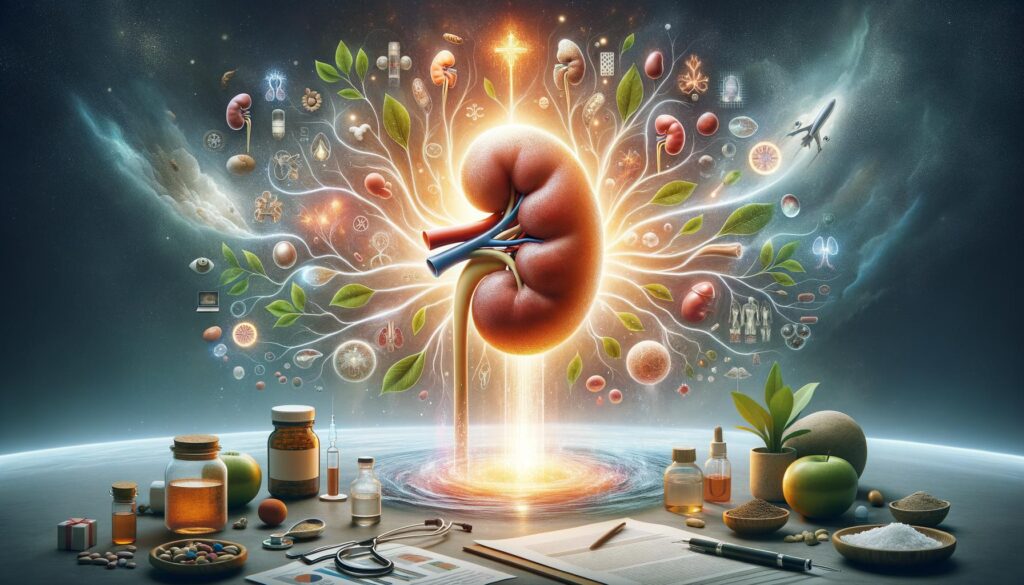Holistic Approaches to Support Kidney Repair

Understanding Kidney Damage
Kidney damage can occur due to a variety of reasons, ranging from chronic diseases like diabetes, high blood pressure, to acute kidney injuries. Understanding the causes is the first step in devising an effective strategy to support kidney health. When kidneys are damaged, their ability to filter blood decreases, leading to the accumulation of waste and excess fluid in the body. Symptoms of kidney damage can include fatigue, changes in urination habits, and swelling in different parts of the body. Identifying these symptoms early is crucial, as it allows for timely intervention and management of the condition.
Consulting Healthcare Professionals
First and foremost, working closely with healthcare professionals is vital when addressing kidney damage. A nephrologist can provide a comprehensive treatment plan tailored to the individual’s specific needs. This often involves regular monitoring of kidney function and adjustments in medication.
- Blood pressure management is crucial since high blood pressure can further damage the kidneys.
- Blood sugar levels should be controlled in diabetic individuals to prevent further complications.
Frequent consultations can also help in identifying any complications early, ensuring that the kidneys are functioning as optimally as possible.
Adopting a Kidney-Friendly Diet
Diet plays a significant role in managing kidney health. Consuming a balanced diet with attention to specific nutrients can aid in reducing the workload on damaged kidneys. A kidney-friendly diet typically involves:
- Reducing sodium intake to help control blood pressure.
- Limiting potassium and phosphorus-rich foods, as damaged kidneys may have trouble filtering out these minerals effectively.
- Ensuring adequate protein intake, but not excessively, to prevent additional kidney strain.
Incorporating fresh fruits and vegetables, while being mindful of their potassium content, along with lean proteins, can also contribute positively to kidney health.
Embracing Lifestyle Modifications
Aside from dietary changes, other lifestyle modifications can significantly impact kidney health. Regular physical activity helps maintain overall health and supports cardiovascular function, which is closely linked to kidney function. Adequate hydration is also important, as it assists the kidneys in flushing out toxins and helps in maintaining balanced bodily functions. Furthermore, avoiding tobacco and limiting alcohol consumption can reduce the risk of exacerbating kidney damage.
Exploring Natural Remedies
While medications and lifestyle changes are fundamental, some individuals look to natural remedies to support kidney health. Certain herbs and supplements are reputed to have beneficial effects on kidney function. These may include:
- Cranberry extract, known for promoting urinary tract health.
- Omega-3 fatty acids, which can aid in reducing inflammation.
- Herbs like nettle and dandelion, traditionally used in kidney health treatments.
However, it is crucial to consult with healthcare professionals before integrating any supplements, as some might interact with prescribed medications or may not be suitable for every individual.
Conclusion
Repairing kidney damage is a multifaceted challenge that integrates medical, dietary, and lifestyle interventions. While each individual’s journey is unique, consistent care under professional guidance, coupled with healthy lifestyle choices, can effectively support kidney health. Staying informed and proactive can empower individuals to manage their kidney health effectively, potentially improving their quality of life.
